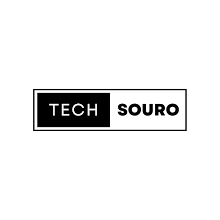When it comes to storage drives, solid-state drive (SSD) technology went mainstream in the last decade. Ever since, analysts have kept a watchful eye on the number of hard disk drive (HDD) and SSD units sold, along with performance efficiency and the price per gigabyte of each drive type. SSDs offered significantly better performance than HDDs, but they cost far more per gigabyte.
Analysts’ graphs indicated that at some point there would be parity, if not a crossover point, at which time SSDs would perhaps kill off HDDs.
The current move from Serial ATA (SATA) to the NVM Express (NVMe) interface, which today enables 5 times the performance, only sweetens the SSD proposition.
Even though SDDs have continued to decline in price compared to previous years, many people still rely on magnetic hard drives as the cheaper storage solution. The producers of traditional HDDs know that they have to continue to deliver technological advances to make sure that SSDs will not make the HDD obsolete. There are significant differences in SSD versus HDD technologies. One of which is that SSDs decrease in life expectancy or storage every time the writing of data occurs on the chips, but the main reasons for using an HDD are price per terabyte and ease of data recovery in the event of a loss. Unfortunately, these advantages over SSD technology can vanish and producers are eager to find new HDD technologies to keep or widen the gap between these competitors.
While it doesn't seem like traditional HDDs will become completely obsolete anytime very soon, these technical challenges and disadvantages threaten the future of hardware that can't keep up with technology.
I think the 10-year time frame makes sense, especially given your points about larger capacities. SSDs still have some room to grow to compete with HDDs in terms of capacity, but with the recent announcements from Micron and Western Digital releasing the first 1TB micro SD, I think it's safe to say we'll get larger storage options from SSDs in the coming years as technology continues to develop and progress- I think it will take a few more years of price declines for some of the newer technology gets more popular since people understandably balk at the price tag in comparison to HDD; But in terms of actual performance, HDDs will simply never catch up and therefore will eventually get left behind...eventually.




0 Comments